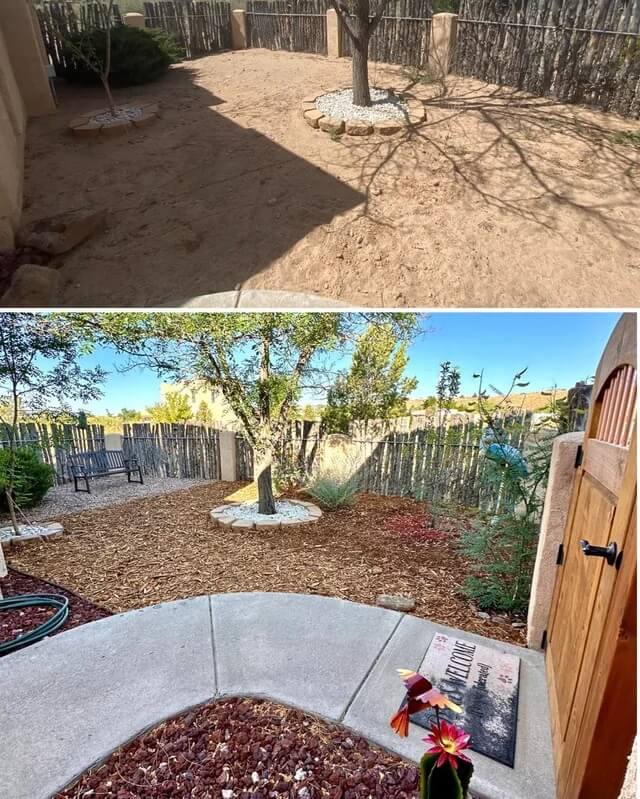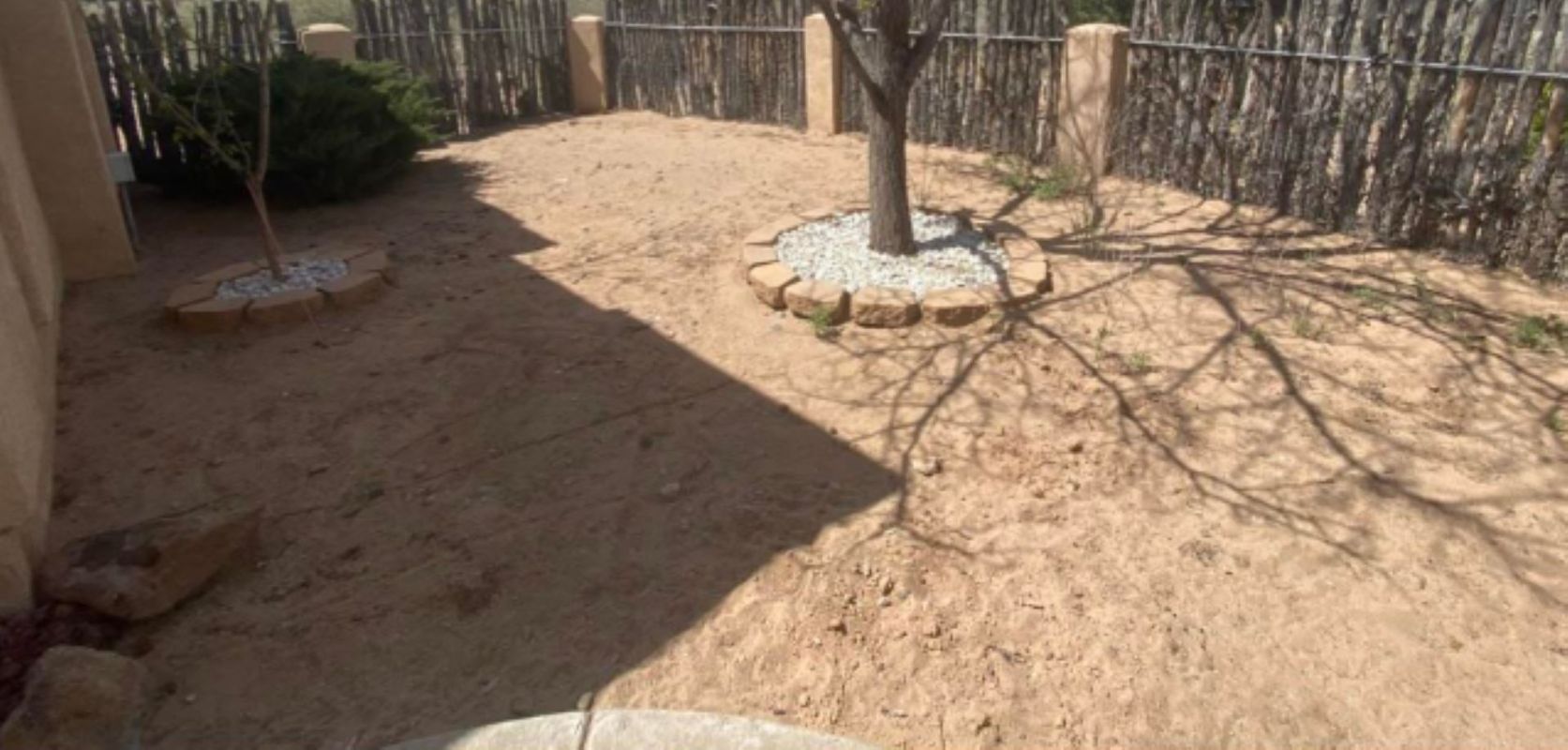A homeowner was on top of their game earlier this year, making multiple planet-friendly decisions with their landscaping.
The triumph turned a barren backyard into a natural wonderland and sparked a "Look What I Did" post on Reddit in the r/NoLawns thread.
"We considered a grass lawn," they wrote. "Being in a desert, we then moved to artificial turf. Quoted $5k. Glad we didn't do either. About $200 of rocks and mulch. Looking forward to planting more natives in here, too."

Installing artificial turf in a small space can often draw quizzical reactions, but that's the least of its risks.
The synthetic surface, made of plastic, features cancer-causing chemicals and other toxins. It can heat up so much that it melts shoes, blisters skin, and induces dehydration and heat stroke via the heat island effect. Crumb rubber, other infills, and microplastics can pollute water supplies and harm aquatic life as well.
Going all-natural with native plants instead can help homeowners pocket thousands in savings over the years — as much as $3,750 on water, fertilizers, pesticides, and weed control in 10 years. That tactic also keeps 1.8 million gallons of water from being used for irrigation.
The only criticism this poster received was for the pair of tree rings they put in a year prior.
Many gardeners have made similar mistakes, but commenters pointed out that trees need their trunks and root flares to be exposed so they can breathe and grow.
"I'm so, so glad you didnt go with turf," one user wrote. "It's just horrible in every way. Especially in a desert it just soaks up the heat and leeches plastic into the soil. In a few years when the native plants are really settled this will look like an oasis."
Another said: "Maybe, we can start to look at landscaping differently, that large lawns are worthless money pits that do nothing for our pocketbooks, the environment, and communities. We can start to see native plants and clover provide more value, that large productive gardens make our diets richer and healthier. That we can stop wasting money on things that most people don't use in the first place."
Join our free newsletter for easy tips to save more, waste less, and help yourself while helping the planet.









